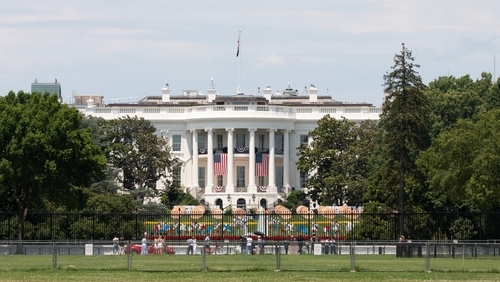REFILE-COLUMN: Appeals court halts ‘shockwave’ attorney-client privilege ruling

By Jenna Greene
Aug 12 (Reuters) - When a major Ohio utility was ensnared in a bribery scandal in 2020, it turned to a time-honored playbook for organizations in hot water: The company and its board of directors each hired a large law firm to investigate and advise on how to respond to looming litigation and enforcement actions.
What FirstEnergy didn’t expect was for a federal judge in Columbus, Ohio, to rule last year that the probe findings weren’t shielded by attorney-client or work-product protections.
That's because the utility also made use of the advice for business purposes, U.S. District Judge Algenon Marbley found.
He ordered the company to turn the documents over to plaintiffs lawyers representing a class of investors suing for securities fraud in the wake of the scandal.
The decision sent “shockwaves” through corporate boardrooms and the legal industry, FirstEnergy lawyers said, and prompted more than three dozen blue chip law firms to sign an amicus brief urging the Sixth Circuit U.S. Court of Appeals to intervene.
Should the decision stand, the firms said, it would “threaten the success of countless internal investigations necessary to the good governance of companies in the United States.” (Left unsaid: their lucrative practices conducting the probes would take a hit as well.)
Exhale, everyone.
Last week, the appeals court ruled that all likelihood, Marbley got it wrong. FirstEnergy is apt to succeed on the merits of its mandamus petition, the panel held, and the investigation documents created by Jones Day and Squire Patton Boggs will indeed be shielded from discovery.
“What matters for attorney-client privilege is not what a company does with its legal advice, but simply whether a company seeks legal advice,” the unsigned August 7 order stated. “After all, a corporation could hardly justify expending resources on legal advice that wasn’t business-related.”
Sullivan & Cromwell co-chair Robert Giuffra, who represents FirstEnergy in the 6th Circuit appeal and underlying securities class action, told me he was pleased that the decision “reiterates that attorney-client privilege and the attorney work product doctrine apply fully to internal corporate investigations.”
Plaintiffs' lawyer Jason Forge, a partner at Robbins Geller Rudman & Dowd, did not respond to a request for comment.
The fight over the internal investigation documents reflects what can sometimes be a tricky question: Must legal advice be the only primary purpose of a privileged communication?
The U.S. Supreme Court in 2023 had the chance to offer guidance in a case involving an unnamed law firm's bid to designate such “dual purpose” client records as privileged in a tax and cryptocurrency investigation. Rather than weigh in, though, the high court in a one-sentence order dismissed the case as improvidently granted a few weeks after oral arguments.
Internal corporate investigations have been around for decades, and FirstEnergy lawyers point to a 1981 Supreme Court decision to argue the fruits of such probes have consistently been treated as protected communications.
As chronicled by my former Reuters colleague Alison Frankel, the FirstEnergy case began in July 2020. That’s when the company disclosed that it had received subpoenas from the U.S. Justice Department in connection with what turned out to be the biggest political corruption scandal in Ohio history. Almost overnight, FirstEnergy’s share price plunged from nearly $42 to less than $23, and investors lost billions.
The company went on to admit to paying a combined $64 million to entities controlled by then-Ohio House Speaker Larry Householder and the chair of the state’s public utility commission in exchange for favorable legislation and regulatory treatment, Reuters reported.
While FirstEnergy has since resolved much of the legal fallout, including paying $230 million to the U.S. government to settle a federal criminal investigation, it’s continued to fight the securities class action by investors, who are seeking $8 billion in damages.
In seeking the internal investigation documents, the plaintiffs argued that FirstEnergy brought in Jones Day and Squire for two business reasons: to assuage its auditor's concerns about certifying the company's U.S. Securities and
Exchange Commission filings and to determine if the utility should fire any of its executives. The special master and the trial judge agreed that the investigations were not sparked by litigation fears but were intended to provide business advice.
The appellate panel – judges Jeffrey Sutton, Alice Batchelder and John Nalbandian, who were appointed by Republicans George W. Bush, George H.W. Bush and Donald Trump -- disagreed, writing that the lower court "gets it backwards.”
Precedent requires considering “whether a communication primarily seeks ‘to render or solicit legal advice,’ irrespective of a company’s reason for wanting that legal advice,” they held.
Moreover, the work-product doctrine, which covers documents prepared in anticipation of litigation, also likely applies. Here, the “flood of legal and regulatory actions prompting FirstEnergy’s investigations explains why,” the panel held.
“FirstEnergy, simply put, faced an onslaught of civil and criminal investigations while pursuing internal investigations.”
(The opinions expressed here are those of the author, a columnist for Reuters.)







